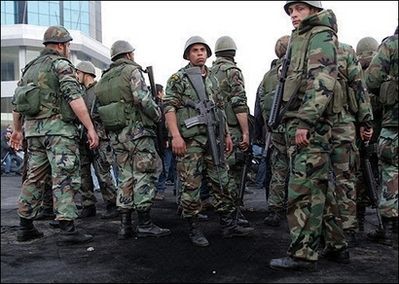 BEIRUT (AFP) Feb 10- At least two people were wounded in an exchange of fire between supporters of rival political factions in Lebanon, a security official said, further heightening tensions in the troubled country. The incident occurred as a convoy of supporters from the Progressive Socialist Party of Druze leader Walid Jumblatt was driving past the local headquarters of the rival Lebanese Democratic Party in Aley, about 15 kilometres (eight miles) east of Beirut the official told AFP. "Shots were heard and a passer-by was wounded by a stray bullet," he said, describing his condition as serious. He said a girl who was travelling in the party convoy was slightly injured. An official from Jumblatt’s party — which is part of the ruling anti-Syrian coalition — told AFP that four people were injured when the convoy came under fire.
BEIRUT (AFP) Feb 10- At least two people were wounded in an exchange of fire between supporters of rival political factions in Lebanon, a security official said, further heightening tensions in the troubled country. The incident occurred as a convoy of supporters from the Progressive Socialist Party of Druze leader Walid Jumblatt was driving past the local headquarters of the rival Lebanese Democratic Party in Aley, about 15 kilometres (eight miles) east of Beirut the official told AFP. "Shots were heard and a passer-by was wounded by a stray bullet," he said, describing his condition as serious. He said a girl who was travelling in the party convoy was slightly injured. An official from Jumblatt’s party — which is part of the ruling anti-Syrian coalition — told AFP that four people were injured when the convoy came under fire.
But a statement from the Democratic Party said its Aley headquarters had come under fire from PSP "militia members", triggering an armed confrontation. It warned that the incident could spark civil strife among the Druze population and said Jumblatt would be held responsible.Several similar incidents have occurred recently in Beirut, with tensions running high because of a long-running political crisis pitting the ruling coalition against the Syrian-backed opposition.
(AFP) 10 FebShots were fired in an altercation on Sunday between supporters of Lebanon’s parliamentary majority leader Saad Hariri and speaker Nabih Berri’s security services in Beirut, a security official said. "A convoy from the Future movement was driving by Berri’s residence. Apparently some heated words were exchanged with Berri’s security service and shots were fired," the official told AFP. He said there did not appear to be any injuries. Several similar incidents have occurred recently in Beirut, with tensions running high amid a long-running political crisis
Jumblatt had earlier launched an outspoken assault on the opposition, warning his side was ready for war.
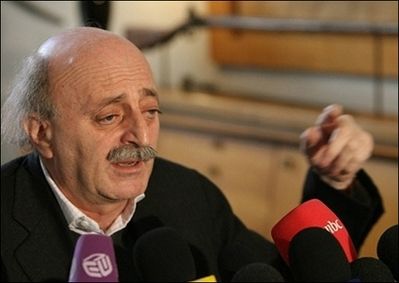 Druze leader Walid Jumblatt, a key figure in Lebanon’s ruling anti-Syrian majority, on Sunday launched a verbal assault on the opposition, warning his side was ready for war. "You want disorder? It will be welcomed. You want war? It will be welcomed. We have no problem with weapons, no problem with missiles. We will take them from you," Jumblatt told a news conference.
Druze leader Walid Jumblatt, a key figure in Lebanon’s ruling anti-Syrian majority, on Sunday launched a verbal assault on the opposition, warning his side was ready for war. "You want disorder? It will be welcomed. You want war? It will be welcomed. We have no problem with weapons, no problem with missiles. We will take them from you," Jumblatt told a news conference.
Speaking four days before the third anniversary of the assassination of former premier Rafiq hariri, Jumblatt warned against a spiral dragging everyone into unrest. "If the political vacuum continues, if arming and training continue… if the charge of treason and assassinations continue — and it seems that will be the case — we will all be dragged towards disorder," he said. But Jumblatt added: "If they (the opposition) want peace, the Forces of March 14 (the parliamentary majority) are ready for it also."
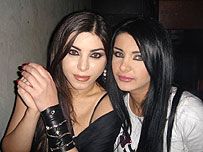 By Mike Sergeant, BBC, Beirut’s legendary nightlife has survived wars, invasions and assassinations.
By Mike Sergeant, BBC, Beirut’s legendary nightlife has survived wars, invasions and assassinations.  Report notes regional disparities, BEIRUT: An international study estimates that the poverty ratio in Lebanon is around 28.5 of the population, accounting for almost a million Lebanese, with 8 percent of the population, or almost 300,000 individuals, living under conditions of extreme poverty. These figures were disclosed by the International Poverty Center (IPC), an institute jointly supported by the Brazilian Institute for Applied Economic Research (IPEA) and the Bureau for Development Policy at the United Nations Development Program
Report notes regional disparities, BEIRUT: An international study estimates that the poverty ratio in Lebanon is around 28.5 of the population, accounting for almost a million Lebanese, with 8 percent of the population, or almost 300,000 individuals, living under conditions of extreme poverty. These figures were disclosed by the International Poverty Center (IPC), an institute jointly supported by the Brazilian Institute for Applied Economic Research (IPEA) and the Bureau for Development Policy at the United Nations Development Program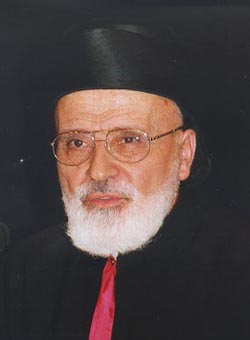 BKIRKI: Maronite Patriarch Nasrallah Butros Sfeir said Tuesday a new president should be elected "as soon as possible," reiterating his support for the head of the Lebanese Armed Forces, General Michel Suleiman. "We support Suleiman because the country needs a president who is for all the Lebanese and who does not distinguish between one party and another," Sfeir said. "The Lebanese are now divided, some are with the East and some with the West," the patriarch added, urging them to be only Lebanese.
BKIRKI: Maronite Patriarch Nasrallah Butros Sfeir said Tuesday a new president should be elected "as soon as possible," reiterating his support for the head of the Lebanese Armed Forces, General Michel Suleiman. "We support Suleiman because the country needs a president who is for all the Lebanese and who does not distinguish between one party and another," Sfeir said. "The Lebanese are now divided, some are with the East and some with the West," the patriarch added, urging them to be only Lebanese.  BEIRUT (AFP) Feb 10- At least two people were wounded in an exchange of fire between supporters of rival political factions in Lebanon, a security official said, further heightening tensions in the troubled country. The incident occurred as a convoy of supporters from the Progressive Socialist Party of Druze leader Walid Jumblatt was driving past the local headquarters of the rival Lebanese Democratic Party in Aley, about 15 kilometres (eight miles) east of Beirut the official told AFP. "Shots were heard and a passer-by was wounded by a stray bullet," he said, describing his condition as serious. He said a girl who was travelling in the party convoy was slightly injured. An official from Jumblatt’s party — which is part of the ruling anti-Syrian coalition — told AFP that four people were injured when the convoy came under fire.
BEIRUT (AFP) Feb 10- At least two people were wounded in an exchange of fire between supporters of rival political factions in Lebanon, a security official said, further heightening tensions in the troubled country. The incident occurred as a convoy of supporters from the Progressive Socialist Party of Druze leader Walid Jumblatt was driving past the local headquarters of the rival Lebanese Democratic Party in Aley, about 15 kilometres (eight miles) east of Beirut the official told AFP. "Shots were heard and a passer-by was wounded by a stray bullet," he said, describing his condition as serious. He said a girl who was travelling in the party convoy was slightly injured. An official from Jumblatt’s party — which is part of the ruling anti-Syrian coalition — told AFP that four people were injured when the convoy came under fire. Druze leader Walid Jumblatt, a key figure in Lebanon’s ruling anti-Syrian majority, on Sunday launched a verbal assault on the opposition, warning his side was ready for war. "You want disorder? It will be welcomed. You want war? It will be welcomed. We have no problem with weapons, no problem with missiles. We will take them from you," Jumblatt told a news conference.
Druze leader Walid Jumblatt, a key figure in Lebanon’s ruling anti-Syrian majority, on Sunday launched a verbal assault on the opposition, warning his side was ready for war. "You want disorder? It will be welcomed. You want war? It will be welcomed. We have no problem with weapons, no problem with missiles. We will take them from you," Jumblatt told a news conference.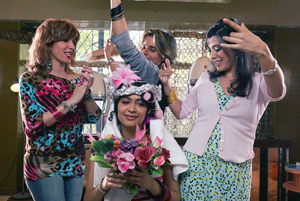 Los Angeles Times
Los Angeles Times 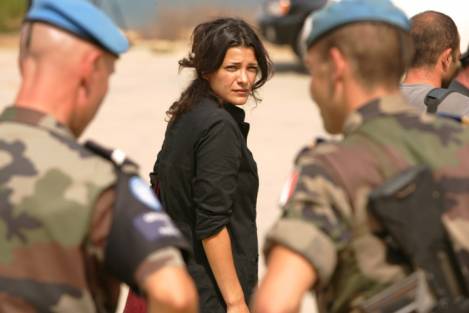
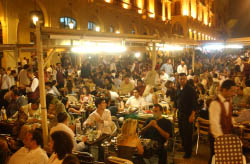 Mona Alami , Inter Press, BEIRUT: A bomb tears through the bustling Chevrolet area on the outskirts of Beirut. Bad news travels fast: Captain Wissam Eid from the Internal Security Forces has been killed in the blast. This is a typical day for Lebanese citizens. The past year has already been grim for most Lebanese businesses. Crisis after crisis has weighed down heavily on the land of the cedars. A permanent protest movement, security problems, a summer war in a Palestinian refugee camp, and sporadic bombings have brought Lebanon to its knees.
Mona Alami , Inter Press, BEIRUT: A bomb tears through the bustling Chevrolet area on the outskirts of Beirut. Bad news travels fast: Captain Wissam Eid from the Internal Security Forces has been killed in the blast. This is a typical day for Lebanese citizens. The past year has already been grim for most Lebanese businesses. Crisis after crisis has weighed down heavily on the land of the cedars. A permanent protest movement, security problems, a summer war in a Palestinian refugee camp, and sporadic bombings have brought Lebanon to its knees. 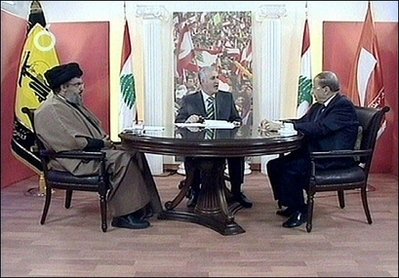 BEIRUT (AFP) – Lebanese Shiite opposition chief Hasan Nasrallah and Christian ally Michel Aoun on Wednesday demanded veto power in a future government to solve the country’s protracted presidential crisis. In a rare joint television interview on the second anniversary of their controversial alliance, Nasrallah and Aoun also insisted that their union helped spare Civil War.
BEIRUT (AFP) – Lebanese Shiite opposition chief Hasan Nasrallah and Christian ally Michel Aoun on Wednesday demanded veto power in a future government to solve the country’s protracted presidential crisis. In a rare joint television interview on the second anniversary of their controversial alliance, Nasrallah and Aoun also insisted that their union helped spare Civil War. 


